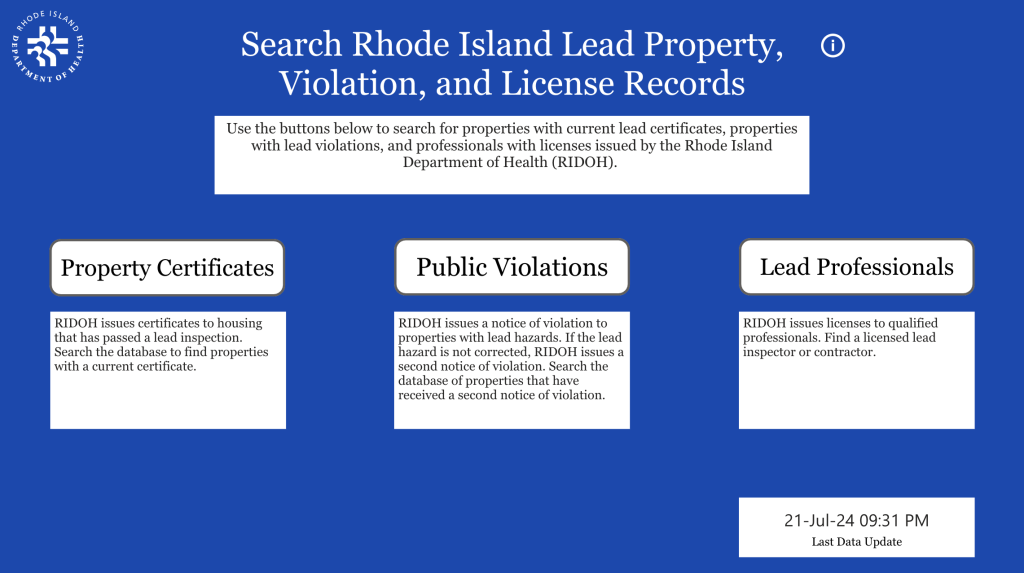
What is Happening?
Rhode Island has long been one of the states leading the way in protecting children from lead-based paint hazards. For almost 20 years, it has required landlords to ensure their rentals are free of lead-based paint hazards based on a lead clearance inspection that includes a dust wipe testing.1
Last year, recognizing that too few landlords were participating, the state’s Childhood Lead Action Project (CLAP), state Attorney General Neronha, and others convinced the legislature to strengthen the program by establishing a mandatory rental registry and closing some gaps in the existing requirements. This year, the legislature provided the Rhode Island Department of Health (RIDOH) with the funding that is essential to launching a transparent rental registry and improving compliance.
To better understand the challenge RIDOH faces, Unleaded Kids assessed the current Certificate of Lead Compliance requirements provided by landlords over the past two years. Using RIDOH’s online database of property certificates, we calculated that about 15% of an estimated 128,000 rental properties built before 1978 are complying.
Why it Matters
Compliance with lead-based paint regulations is essential to protecting vulnerable families from lead exposure. Low-income renters are particularly vulnerable, especially in a tight housing market where affordable housing is scarce, because they typically lack the time and resources to demand that landlords comply. They depend on regulatory agencies, such as RIDOH, to protect them.
Regulatory agencies need the resources and the tools to do their work. Last year, in response to concerns by CLAP and others, the Rhode Island legislature rose to the challenge and established a groundbreaking statewide mandatory rental registry and strengthened existing lead hazard mitigation requirements for rental properties. In June, the legislature reaffirmed its commitment by providing additional implementation funds and rejecting the governor’s proposals that would have undermined the program.2
Rhode Island’s New Requirements
By October 1, 2024, all landlords3 must register their rental property with RIDOH and reregister it annually. If they fail to comply, they face monthly fines and cannot commence an eviction action for non-payment of rent.
If their residential property was built before 1978, the landlord must, with few exceptions,4 also submit to RIDOH a Certificate of Lead Conformance with the state’s Lead Hazard Mitigation Act requirements.5 Unless the dwellings are “lead-safe” or have lead hazards abated, the landlord must have a licensed lead inspector who is not the property owner or an employee of the property owner conduct a visual assessment that lead hazard controls have been met and lead dust testing demonstrating that levels are less than the hazard standard every two years.
Unleaded Kids’ Findings
We generously estimated that 18,584 units are complying with Lead Hazard Mitigation Law for rental property. To develop this estimate, on July 5, 2024, we downloaded from RIDOH’s database the available information:
- Certificates of Lead Conformance that were issued between June 1, 2022 and May 31, 2024.6 After eliminating duplicate addresses, we had 15,308 unique properties.7 This includes: a) 970 conditional certificates; b) 383 certificates for interior only that had expired on June 30, 2023; c) 31 certificates that are presumptively in compliance for property owners who own 10 or more units and had at least 5% of the unit and at least 2 units passing an inspection; and d) 8 units that had only a visual inspection based on tenancies over 2 years.
- “Lead Free” and “Full Lead Safe” Certificates issued since 1996. After eliminating duplicates, we had 747 “Lead Free” and 2,529 “Full Lead Safe” Certificates. While many may be owner-occupied homes, we presumed they were all rental property and added them to the 15,308 because they were exempt from the Certificate of Lead Conformance requirement for a total of 18,584.
We estimated that there are 128,000 rental homes built before 1978 in Rhode Island, about 72% of the state’s 177,000 rental homes.8
We found that about 1 in 7 (about 15%) of the estimated 128,000 pre-1978 rental homes were covered by a certificate, though it could be much lower.
Our Take
Rhode Island’s Certificate of Lead Conformance is a model for the nation.9 However, at about 15%, the compliance rate is so low that it appears insufficient to protect low-income renters who are particularly vulnerable to the risk from lead-based paint.
We applaud the Rhode Island legislature for recognizing the problem and addressing it through support for a statewide transparent rental registry. This registry, when implemented well, will be a great tool to help boost compliance with the existing lead certificate requirement.
Next Steps
RIDOH let us know that it is actively working to create the rental registry, including hiring the necessary staff and developing the technical infrastructure to support the rental registry. This registry will serve as a vital source of information about rental properties’ adherence to housing standards and health laws for property owners, renters, and public health officials. RIDOH’s focus will be to ensure that all pre-1978 rental units have a valid lead certificate.
- Rentals comprised of two or three units, one of which was occupied by the property owner, were exempt until January 1, 2024. ↩︎
- The Rhode Island legislature removed from the Governor’s proposed FY25 funding law changes to the 2023 law that would have seriously undermined the program. In a February 2024 blog, we described our concerns with the proposal. ↩︎
- There is a separate registration requirement for short-term rental using a third-party platform such as AirBnB or VRBO. Short term means less than 30 days at a time. ↩︎
- In the alternative, they can also provide “evidence sufficient to demonstrate they are exempt from the requirement to obtain a certificate of conformance.” Exemptions include condominium associations, temporary housing, elderly housing, or if a tenant has continuously resided in the unit since 2005 ↩︎
- In 2023, the law was amended to remove an exemption for rentals comprised of two or three units, one of which was occupied by the property owner. ↩︎
- The RIDOH database does not allow the information to be easily downloaded. Unleaded Kids had to copy and paste the information from the online search tool in small selections more than 500 times. ↩︎
- See RIDOH’s webpage for details. ↩︎
- Based on the 2020 Census, Rhode Island has about 177,000 rental homes—about 37% of the total. Based on the 2011 American Housing Survey for the Providence / Fall River / Warwick Metropolitan Statistical Area, 77% of the homes were built before 1975. Based on the MSA’s new housing construction rate from 2000 to 2011, we estimate the state added 6.5% of homes after 2011. ↩︎
- We considered doing a similar analysis for Maryland and Massachusetts, the two other states with similar requirements, but were unable to find the publicly available information to conduct the review. ↩︎
